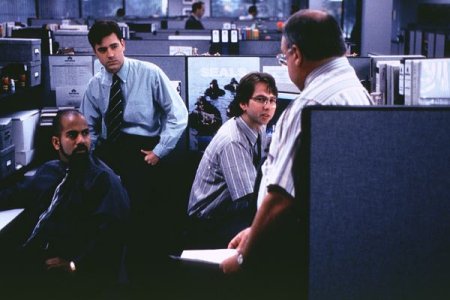I wrote previously on the virtues of
culture as a startup accelerant (by reducing organizational inefficiencies, culture paves the path for exponential growth). However, I left out a crucial effect that culture has on shaping the startup's actual output: namely, that
the startup culture manifests itself in the products & services the startup creates.
Here is how:
The entrepreneurial process is the result of making prioritized decisions based on a seemingly infinite set of tasks. Anyone who has spent time at a startup is familiar with the overwhelming (and ever increasing) amount of tasks that can only be tackled in a prioritized fashion in order to make any real progress. The Product Managers are especially familiar with this, as they typically own this process as far as the startup's actual product features and specifications are concerned. They are the stewards of an iterative process that starts with the collection and collation of inputs from various stakeholders inside and outside the organization (including employees and end users), and ending with assignment of the most important tasks to developers and engineers for the upcoming sprint/release cycle.
The most important part of this iterative process, however, is everything that happens in between: Namely, the assignment of prirorities to the requests. And that is exactly where culture comes in since much of the priorities are driven based on the cultural underpinnings (i.e., the "gut instincts" and "feelings") of the organization. Tasks that "feel" important and critical find their way to the top of the list, and those that don't pass the gut check, keep getting relegated to the bottom of the backlog.
To the analytically inclined amongst us, however, the above may sound too fuzzy and perhaps even irrational, as they may object that a responsible Product Manager should primarily focus on the impact of various tasks on the key performance indicators or core metrics of the Product, and leave all emotions and feelings aside. However, even though I firmly believe in the importance of metrics, I have come to view that kind of rigorous analytics in product development as more or less an illusion.
There are many reasons that metrics alone cannot lead to real product decisions: First, the immediate impact of most development tasks is best an estimation and not known prior to release; second, there is usually more than one metric that is impacted by any given product change, and most organizations don't have a strict formula for how to trade off various metrics against each other; third, long-term impact of most product changes are inherently unknown; forth, most startups do not have a formula on how to weigh long term effects against short term effects; and so on and so forth. Product decision makers are dealing with very complex, multivariate issues, things far beyond the capability of the human brain. There is mounting evidence from experimental psychology that it is exactly situations like this where our
emotional brain kicks into gear, and helps us make decisions based on our values (for a highly engaging and informative survey of the latest research in this area, I encourage you to read
How We Decide by Jonah Lehrer).
And that's exactly where the startup culture makes its imprint on what it produces.
For instance, if "user experience" is important to the culture, then things that help the user's experience will become prioritized, at times even at the cost of some core metrics such as revenue or profits. On the other hand, if "fast growth" is in the startup DNA, then you will see tradeoffs that put at risk user experience and even long term financial viability of the organization.
This is why the role of founders as the guardians of culture is so critical to the success of startups!
 For some reason, for years traditional marketers were convinced that consumers need to be herded/forced into making the marketer's desired choice, rather than letting the consumer make an informed decision. As an obvious example, think of claustrophobic setting in pre-Bellagio Casino's, where you could look for miles and not see an exit door! For some reason, it was believed that the less the gamblers saw the possibility of an exit, the longer they would sit at the cramped gambling tables. Not sure how they may have A/B tested that hypothesis, but perhaps they were using sheep rather than people in their experiments?
For some reason, for years traditional marketers were convinced that consumers need to be herded/forced into making the marketer's desired choice, rather than letting the consumer make an informed decision. As an obvious example, think of claustrophobic setting in pre-Bellagio Casino's, where you could look for miles and not see an exit door! For some reason, it was believed that the less the gamblers saw the possibility of an exit, the longer they would sit at the cramped gambling tables. Not sure how they may have A/B tested that hypothesis, but perhaps they were using sheep rather than people in their experiments?
